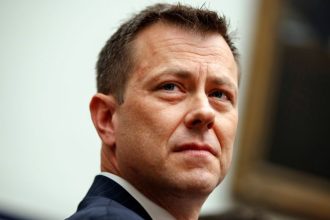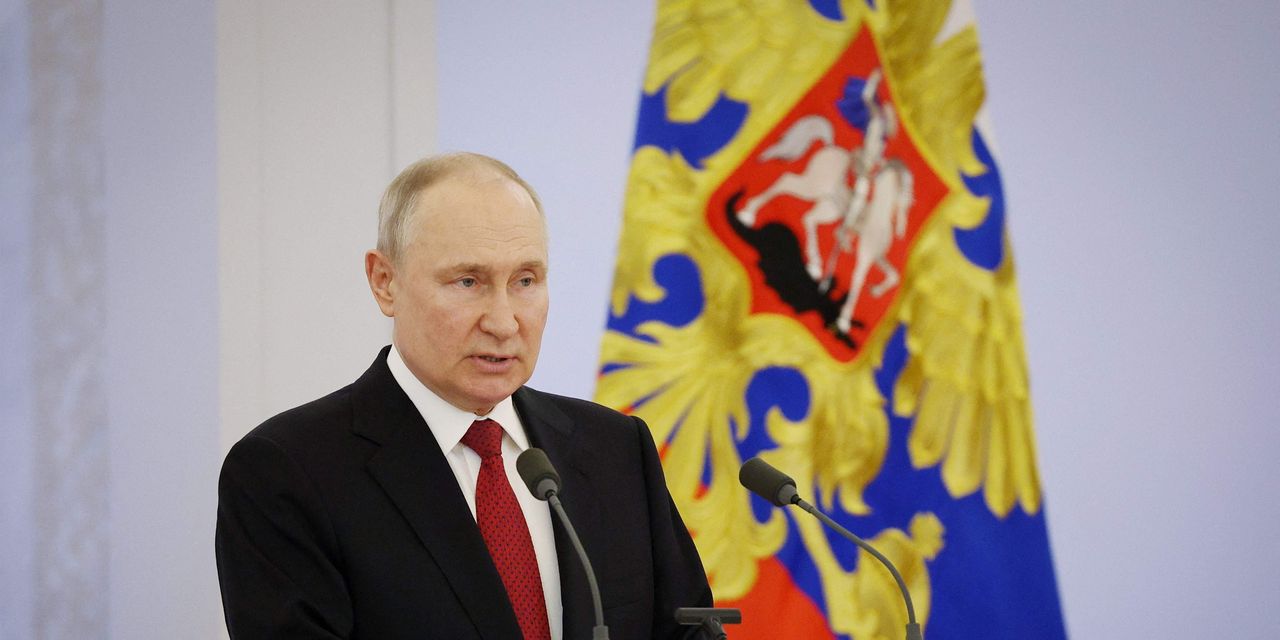It is safe to say government officials don’t like to admit they don’t know the answer to a question.
So it stands out when President Joe Biden says, as he did Monday, that it is too soon to know how things will play out in Russia.
On Saturday, mercenary troops under the control of Russian warlord Yevgeny Prigozhin got within 200 miles of Moscow before suddenly turning around.
At first it looked like there was a deal brokered by Alexander Lukashenko, the generally Putin-aligned president of Belarus, that would allow both sides to save face and coexist.
But the deal apparently didn’t last long.
On Monday evening, Putin gave a five-minute televised statement denouncing the leaders of the Wagner Group and said that any mutiny was doomed to fail. While not naming Prigozhin, Putin said that organizers of the revolt had failed in their goal of getting Russians “to shoot their own” and that they had “miscalculated.”
All this has left critical questions about what will happen next in Russia, and what will be the impact on the global economy and geopolitics — but few answers.
All agree that events will continue at a rapid pace.
“This is just the first act,” said Angela Stent, the director of the Center for Eurasian, Russian and Easter European Studies at Georgetown University.
What does it mean for Putin?
Gary Kasparov, the Russian chess grandmaster and longtime Putin critic, said that the Russian president has lost the aura of invincibility that every dictator needs to survive. “When his enemies see he’s vulnerable and his allies see he can no longer protect them, the clock is ticking,” Kasparov said on Twitter.
Other analysts are more unsure.
While agreeing that the events were the most serious threat to Putin’s rule in two decades, “nothing is more unsure,” said Ipek Ozkardeskaya, a senior analyst at Swissquote Bank.
David Szakonly, assistant professor of political science at George Washington University, said the the question going forward is how much momentum Putin can build. “He’s still in charge, and the people are following his orders,” Szakonly said.
Timothy Frye, professor of post-Soviet foreign policy at Columbia University, said he was surprised Putin didn’t call on the public to take to the streets to defend the regime. “So, apparently, Putin thinks he’s less popular than many other people think,” Frye said.
What does it mean for the war in Ukraine?
Some commentators were optimistic that Ukraine might be able to capitalize on the turmoil in Russia and make progress on the battlefield.
Stent, the Georgetown professor, labeled that wishful thinking.
The Ukrainian counteroffensive “is going to be a hard slog,” Stent said. She said it was important that Ukraine be admitted to NATO at the alliance’s summit next month.
But another key unknown is the morale of Russian soldiers, especially since Wagner’s private fighters have been among the most effective on the battlefield.
What does it mean for the Russian economy?
Liam Peach, senior emerging-markets economist at Capital Economics, said that the near-term impact of the rebellion is likely to be small. There doesn’t seem to be a sense of panic among the Russian public or mass withdrawals from the banking system.
Peach said the Ukraine war could become a “frozen conflict” that lasts years, with significant implications. Russia has to this point engaged in a relatively limited war effort that has allowed its economy to find an equilibrium. “Any increase in military efforts could be met with further Western sanctions, leave Russia more exposed to lower oil prices
CL00,
BRN00,
and weaken Russia’s resilience,” Peach said.
What is going to happen to the Wagner Group and Progozhin?
Putin said that the overwhelming majority of Wagner members are patriots and not to blame.
He said Wagner’s fighters should either sign up with Russia’s Ministry of Defense, go home or go to Belarus.
Russian Foreign Minister Sergei Lavrov said Wagner fighters in Africa wouldn’t be withdrawn from the continent, saying they’d remain in the Central African Republic and Mali. Both those countries have sought help from Russia to fight armed groups.
Matt Miller, a U.S. State Department spokesman, said Washington does not know what will happen to Wagner in Africa — and added that the U.S. would keep trying to counter the group’s influence.
“To the extent Wagner continues to operate in Africa or in Ukraine or anywhere else in the world, or any Wagner successor organizations pick up the mantle that Wagner has carried, we will continue to take actions to hold either Wagner or their successor accountable,” Miller told reporters Monday.
In Putin’s eyes, Prigozhin is still a traitor, said Ian Bremmer, the president of Eurasia Group. Prigozhin is “kind of dead man walking at this point,” Bremmer told CNBC on Monday. “I would be very surprised that he’s still with us in a few months’ time.”
“Prigozhin might not have that much long left to live,” said Tympfiy Mylovanov, head ofof the Kyiv School of Economics and an adviser to Ukrainian President Volodymyr Zelensky, in a tweet.
Reports Monday indicated that Prigozhin was in Minsk, apparently having followed through on reports late Saturday that he would relocate to Belarus, though exiled Belarusian opposition leader Svetlana Tikhanovskaya said there was no confirmation he was in that country.
Catrina Doxsee, associate director of at Center for Strategic and International Studies, said that there will be a struggle between Putin and Progozhin over the wide variety of “big shadowy network of shell companies” all linked to Wagner. These include companies that smuggle gold and diamonds out of Sudan and the Central African Republic.
How will China view the failed revolt?
China expressed support for Russian efforts to maintain stability in the wake of the weekend uprising, and the Russian foreign ministry said China had declared support for the leadership in Moscow.
But observers like Michael McFaul, a former U.S. ambassador to Russia, were questioning whether Chinese President Xi Jinping believes it’s a “good strategic bet” to remain close to Putin, and reporters were asking U.S. officials whether the instability in Russia would give China pause in its support for Russia.
“I wouldn’t want to speculate on how [China] might read this situation,” Miller told reporters at a State Department briefing. “I would just reiterate what Secretary Blinken said directly in his meetings to [the Chinese leadership], which is we would urge them to continue to not support Russia with direct military assistance.”
Read the full article here




